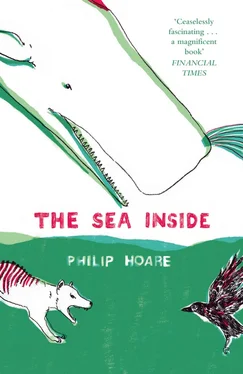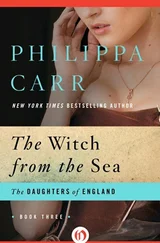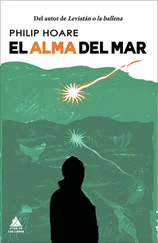Throughout Murdoch’s tragi-comic drama, the ever-changing sea abides, a character in itself, a mindful reminder of her hero’s impotence to change his fate and manipulate his friends, despite his deluded attempts to do so. He seems locked into what is happening, all the while documenting each oddly concocted meal, even at moments of great crisis. He eats: tinned macaroni cheese ‘jazzed up’ with cold courgettes, ‘Battenburg roll and prunes’, ‘boiled onions served with bran’, ‘poached egg on nettles’, ‘a little cold jellied consommé straight out of the tin’, all washed down with Spanish wine bought from the nearby Raven Hotel. Such details serve only to make the story more bizarre. Having abducted the woman whom he had loved as a boy, and who, by extraordinary circumstance, he suddenly discovers to be living nearby, the book ends with Arrowby – who has nearly drowned, violently, in the sea in typically mysterious circumstances – experiencing an epiphany in the shape of four seals bobbing in the water, ‘their wet doggy faces looking curiously upward … And as I watched their play, I could not doubt that they were beneficent beings come to visit me and bless me.’
Murdoch took her title from the cry of the Greek warriors who finally saw the Black Sea after fighting against the Persian empire, a sight that heralded home. As a writer, she was criticised for her apparent belief in myth and monsters: in person, as in her work, her fierce intelligence contrasted with a faint naïveté. She ended her life losing her senses in public, suffering from dementia and yet being taken everywhere by her writer husband. I’d often see her at literary launches: a ghostly, silver-haired figure with flickering eyes and a fixed smile, lost in a corner of a room that might have been any room, anywhere, with anyone in it.
The sea sustains and threatens us, but it is also where we came from. Some consider that the relationship is closer than we think. Callum Roberts, among other scientists, has noted that the ratio of subcutaneous fat in humans is ten times that of other primates, nearer to that of a fin whale. From an evolutionary point of view, such human blubber would make little sense for a land hunter, but it would be eminently useful for an ‘aquatic ape’ which developed by the sea. Equally, we cannot fly or even run as fast as other animals, and we lack hair to keep our bodies warm, but we can swim and dive – skills which would not make sense, some say, unless we were made for or at least shaped by the water.
First proposed by Desmond Morris and subsequently explored by Elaine Morgan – who saw a certain prejudice in the way in which her ideas were rejected – the ‘aquatic ape’ theory is controversial, dismissed by scientists suspicious of its simplicity. Perhaps there is something a little too perfect about the notion that rather than descending from the trees to hunt on the savannah, we gravitated instead to the shore, not least because it argues against the idea that we are defined by our ability to kill. Yet new evidence suggests that a diet sourced from the ocean may have provided the fatty acids that enabled our brains to grow, and that we stood on two legs to wade as we scavenged for shellfish on the shores of our earliest home in sub-Saharan Africa. That we were, and are, intimately linked to the sea.
Other factors have been marshalled to support Morgan’s argument: that we are prone to dehydration in a manner which would not be helpful to savannah-dwelling animals, and that we exhibit an instinctual breath-holding reaction when we plunge into water: other terrestrial mammals cannot regulate their reflex breathing. Does this mean that we were once well used to entering the sea, perhaps sticking our heads in to search for food, or even spending longer periods there? The Belgian anthropologist Marc Verhagen and his colleagues believe it is possible, arguing that our wide shoulders are more suited to swimming than running, and that we might owe our long legs and long strides to forebears who foraged in the shallows.
Our vestigially webbed fingers have also been claimed as an amphibious refinement of this watery life – just as the seabird hunters of St Kilda developed broad feet from climbing the cliffs, and the sea gypsies of south-east Asia, used to diving in the shallow seas, have eyes that appear to focus as well, if not better, underwater. Even our organs contain a memory of the sea. Our kidneys evolved to deal with excess salt, to which our evolutionary ancestors were subject; being fifty per cent water, we all contain the sea inside us.
While many scientists dismiss the notion of an aquatic ape, the proposal is intriguing: that we owe our development and our dominion, our intelligence and even our souls, to the water, although we live out our lives on the land.
We cannot resist; we are all watergazers. And like so many others, my own, more recent ancestors also felt the urge to travel over the sea, in search of something new.
My great-great-great-uncle, James, the eldest of William Nind’s thirteen children (of whom at least three died in childhood), was born in Ashchurch, a hamlet near Tredington in Gloucestershire, in 1782. The Ninds had been farmers since at least the sixteenth century, living in the same small triangle of fertile land at the foot of the Cotswold hills, moving between villages such as Beckford, Walton Cardiff, Ashchurch and Alstone, near the towns of Tewkesbury and Cheltenham.
As the eldest son, James was expected to follow his father, working the land. But in the family tree she compiled in her fine handwriting, my aunt recorded the tradition that James left England for Ceylon to acquire a plantation (probably of coffee, rather than tea, which was not grown on the island until the mid-nineteenth century). He was also said to have been involved in another trade: human trafficking. Slavery had been banned by Britain in 1807, but continued in its colonies until 1838, and James was engaged in ‘blackbirding’, a kind of kidnap in which native people were lured onto ships and abducted, to be sold on as indentured labourers. As a result of his activities, James Nind amassed a fortune worth three hundred thousand pounds, only to die at sea, sailing from Ceylon on a ship called Breezy Horse .
Ever since I heard about it as a boy, I’ve imagined that scene: a storm-tossed vessel, my ancestor tipping over the gunwales in a flash of lightning. Or perhaps he went of his own accord, like Captain William Ostler of the Marquis of Hastings , who, on his way back from New South Wales and China in September 1827, ‘threw himself overboard in a fit of insanity off the Cape of Good Hope, on the night of the 9th September. A paper, containing the following words, was found lying on the table of his cabin in the morning: “A bad crew and bad chief-mate is the destruction of William Ostler.”’ Whatever the manner of James Nind’s death, it was certainly unforeseen: he left no will, and his relatives were unable to claim his money. A moral return, perhaps, for such immoral gains.
For years afterwards the Ninds tried to find out what had happened to James, and his fortune; there were no records of his estate, his ship, or his death to be found. Yet the rumours persisted, fed by the prospect of lost riches. In 1921, a syndicated story appeared in the American press under the headline ‘Unsolved Mysteries’. It speculated that James Nind had actually come to America, rather than Ceylon, along with his brother William, and had accrued his wealth in South America under an assumed name. ‘The theory is that James Nind after living in New York for some years went to one of the South America Republics … building up a fortune as so many adventurers from the Anglo-Saxon race have done in different parts of the world. In these countries the state of society is so unsettled that many obstacles might be thrown in the way of recovering the Nind fortune.’
Читать дальше












